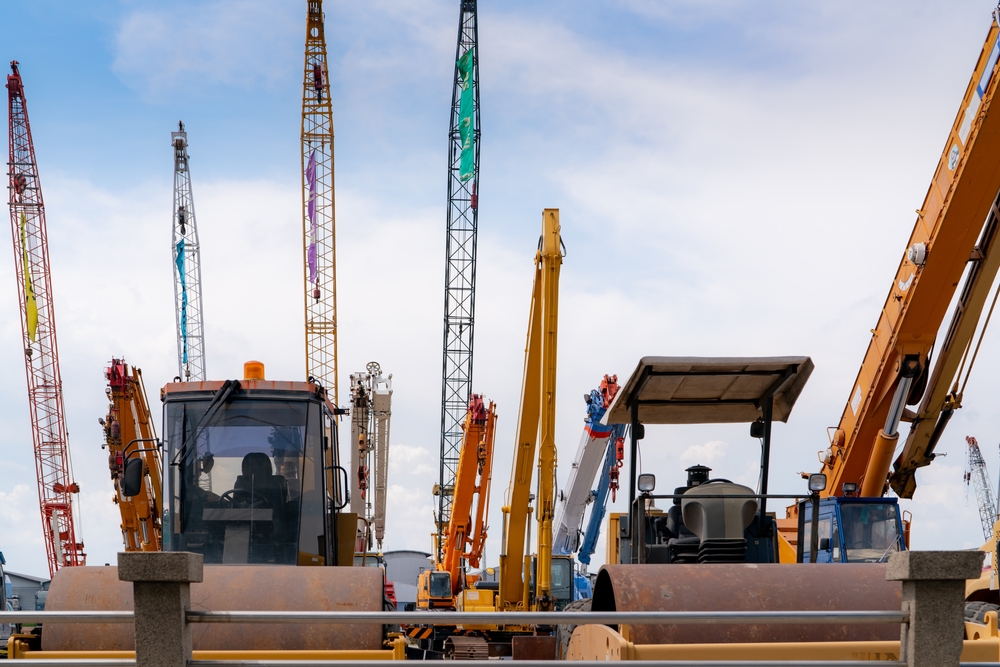
When to Rent vs. Buy Heavy Machinery: A Comprehensive Analysis
July 9, 2024 1:50 pm Leave your thoughtsIn industries ranging from construction and mining to agriculture and forestry, the decision of whether to rent or buy heavy machinery is pivotal. Each option comes with its own set of considerations, ranging from financial implications to operational flexibility and maintenance responsibilities. Understanding the factors that influence this decision can significantly impact the efficiency and profitability of businesses involved in these sectors.
Factors Influencing the Decision
1. Capital Investment
One of the primary considerations when deciding between renting and buying heavy machinery is the capital investment required. Purchasing machinery involves a significant upfront cost, which can strain a company’s finances, especially for smaller businesses or startups. Renting, on the other hand, allows businesses to access equipment without a large initial outlay, thereby preserving capital for other essential expenditures such as payroll or expansion projects.
2. Utilization Frequency
The frequency with which the machinery will be used is another critical factor. If the equipment is expected to be utilized consistently throughout the year or for long periods, purchasing might be more cost-effective in the long run. Conversely, if the machinery is only needed for specific projects or seasonal work, renting could prove to be a more economical choice. Renting allows businesses to pay only for the duration they need the equipment, thereby avoiding costs associated with idle machinery.
3. Operational Flexibility
Renting heavy machinery offers greater flexibility compared to purchasing. Businesses can easily scale their equipment needs up or down depending on project requirements. This flexibility is particularly advantageous in industries where project timelines and scopes may vary unpredictably. Renting also allows businesses to access specialized equipment for specific tasks without committing to long-term ownership.
4. Maintenance and Upkeep
Owning heavy machinery entails significant responsibilities regarding maintenance and upkeep. Maintenance costs, including regular servicing, repairs, and replacement of parts, can add up over time. For businesses that lack the expertise or infrastructure for comprehensive equipment maintenance, renting can be a viable alternative. Rental agreements often include maintenance services provided by the rental company, reducing the burden on the business.
5. Technology and Innovation
The pace of technological advancement in heavy machinery is rapid, with new models offering enhanced efficiency, safety features, and environmental sustainability. Renting allows businesses to access the latest technology without being tied to outdated equipment. This can be particularly advantageous for industries where productivity gains from newer equipment justify the rental costs.
Cost Analysis: Renting vs. Buying
1. Short-term Cost Considerations
In the short term, renting heavy machinery generally involves lower costs compared to purchasing. Renting eliminates upfront expenses such as down payments, loan interest, and depreciation. It also mitigates risks associated with equipment resale value and market fluctuations.
2. Long-term Cost Considerations
Over the long term, the cost dynamics between renting and buying heavy machinery can shift. Purchasing equipment may result in lower average costs per hour of operation, especially if the machinery is used extensively. However, this calculation depends heavily on factors such as maintenance expenses, resale value, and the duration of equipment use.
3. Financial Strategies
The financial strategy of a business plays a crucial role in determining whether renting or buying heavy machinery is more advantageous. Businesses with strong cash flow and access to favorable financing options may opt to purchase equipment to capitalize on tax benefits and asset ownership. Conversely, businesses prioritizing liquidity and operational agility may favor renting to conserve capital and adapt to changing market conditions.
Case Studies and Industry Examples
1. Construction Industry
In the construction industry, where project timelines and equipment needs can vary significantly, renting heavy machinery is a common practice. Contractors often rent specialized equipment for specific phases of construction projects, optimizing resource allocation and project efficiency.
2. Mining and Quarrying
In mining and quarrying operations, heavy machinery is essential for extraction and processing activities. Companies in this sector often purchase core equipment used daily, while renting additional machinery for temporary projects or expansions.
3. Agriculture and Forestry
Agricultural and forestry businesses often face seasonal fluctuations in equipment demand. Renting allows these businesses to access harvesting or planting equipment during peak seasons without incurring costs during off-peak periods.
Environmental Considerations
Sustainability and Emissions
The environmental impact of heavy machinery should not be overlooked when making the renting versus buying decision. Newer equipment models often boast improved fuel efficiency and reduced emissions, contributing to sustainability goals. Renting enables businesses to access environmentally friendly equipment without committing to long-term ownership of potentially outdated machinery.
Conclusion
The decision to rent or buy heavy machinery involves a complex analysis of financial, operational, and strategic factors. While purchasing may offer long-term cost advantages and asset ownership benefits, renting provides flexibility, cost control, and access to advanced technology. Ultimately, businesses should evaluate their specific needs, financial capabilities, and growth objectives to determine the most suitable approach. By carefully weighing these factors, businesses can optimize their equipment investments and enhance operational efficiency in competitive industries.
Need Heavy Equipment Experts in Abilene, TX?
Categorised in: Equipment Rental, Heavy Equipment
This post was written by admin
